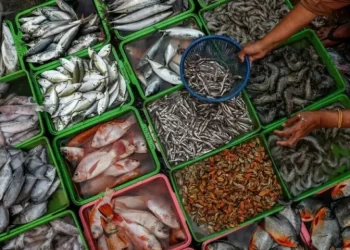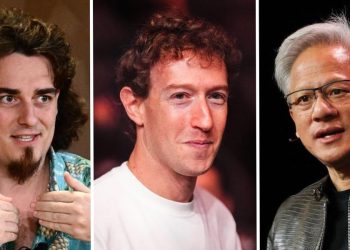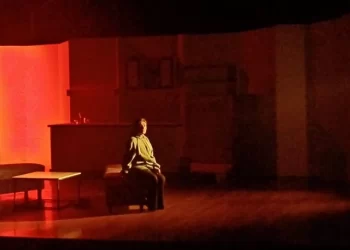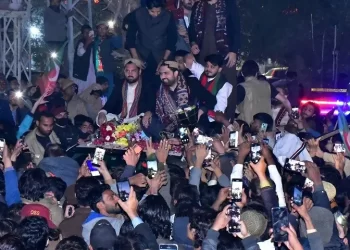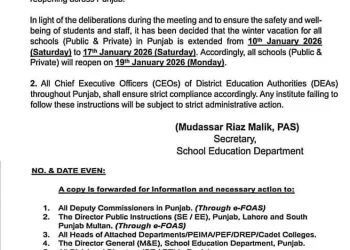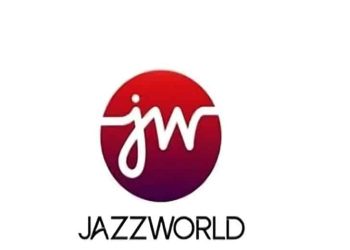Russian President Vladimir Putin signed a deal with North Korea’s Kim Jong Un on Wednesday that included a mutual defence pledge, one of Russia’s most significant moves in Asia for years that Kim said amounted to an “alliance.”
Putin’s pledge overhauls Russia’s entire post-Soviet policy on North Korea just as the United States and its Asian allies try to gauge how far Russia could deepen support for the only country to have tested a nuclear weapon this century.
On his first visit to Pyongyang since July 2000, Putin explicitly linked Russia’s deepening of ties with North Korea to the West’s growing support for Ukraine and said Moscow could develop military and technical cooperation with Pyongyang.
After talks, they signed a “comprehensive strategic partnership” pact, which Putin said included a mutual defence clause in the case of aggression against either country.
“The comprehensive partnership agreement signed today provides, among other things, for mutual assistance in the event of aggression against one of the parties to this agreement,” Putin said.
He said Western deliveries of advanced, long-range weaponry including F-16 fighters to Ukraine for strikes against Russia breached major agreements.
“In connection with this, Russia does not exclude for itself the development of military-technical cooperation with the Democratic People’s Republic of Korea,” Putin said.
Kim praised Russia for making what he cast as an enormously significant strategic move to support North Korea, which was founded in 1948 with the Soviet Union’s backing.
Depending on the exact wording of the pact, which was not released, it could be a dramatic shift in the strategic balance in Northeast Asia by placing Russia’s heft behind North Korea – which faces South Korea, backed by the United States, across the heavily fortified demilitarised zone (DMZ).
While North Korea has a defence treaty with China, it does not have active military collaboration with Beijing like it has developed with Russia over the past year.
North Korea also signed a 1961 treaty with the Soviet Union that included promises of mutual support in the event of an attack.
China, the North’s main political and economic benefactor, had no immediate response.
Putin’s courting of Kim, which has included gifts of limousines and a tour of Russia’s new space launch centre, has alarmed the United States and its Asian allies.
“Deepening cooperation between Russia and the DPRK is a trend that should be of great concern to anyone interested in maintaining peace and stability on the Korean Peninsula, upholding the global non-proliferation regime, abiding by UN Security Council resolutions, and supporting the people of Ukraine,” a spokesperson for the US State Department said.
Putin was greeted by cheering crowds lining the streets of Pyongyang along with children waving Russian flags and a military salute. Kim, 40, greeted Putin at the airport.
After talks, Putin drove Kim around in a luxury Russian limousine. They then switched places and Kim drove Putin. Later, they watched a concert together.
Putin accused the United States, South Korea and Japan of raising tensions on the Korean peninsula and said North Korea had a right to strengthen its own defences.
Kim said the pact would expand cooperation in politics, economy and defence, calling it “strictly peace-loving and defensive” in nature.
“Our two countries’ relations have been elevated to the new higher level of an alliance,” Kim said.
At the start of their summit, Kim expressed “unconditional support” for “all of Russia’s policies”, including “a full support and firm alliance” for Putin’s war with Ukraine.



